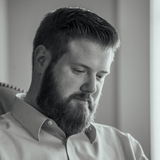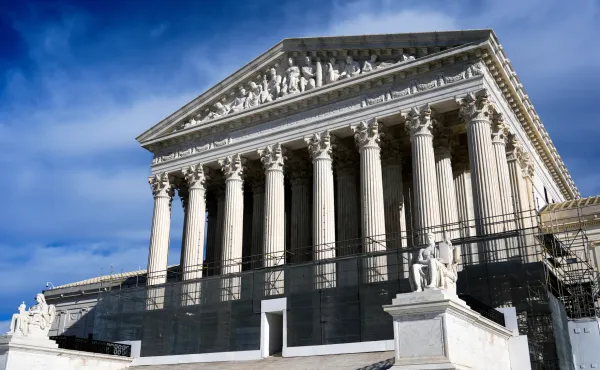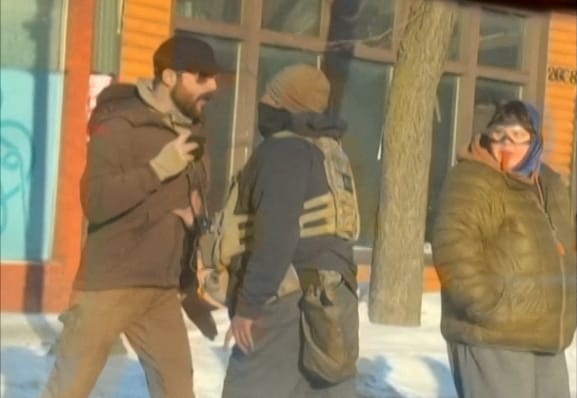A Nation Without Fathers
We are all grieving, just as we did two years ago after the Uvalde shooting, as we learn that a 14-year-old stormed into a Georgia school yesterday, killing two students and two teachers. The most tragic part? We now know he had been making these threats over a year ago. Yet, when investigators ques
Dear readers, I know I just sent out a newsletter earlier this morning, but recent events compel me to write again. In times of such turmoil, it’s hard to remain silent. We are all grieving, just as we did two years ago after the Uvalde shooting, as we learn that a 14-year-old stormed into a Georgia school yesterday, killing two students and two teachers. The most tragic part? We now know he had been making these threats over a year ago. Yet, when investigators questioned his father, they were assured that the boy had no access to weapons and that the online threats weren’t coming from him. And now, once again, the nation is reeling—searching for answers, scrambling to find causes, and begging for some kind of solution to protect our children.
A society, much like a house, cannot stand firm on a single support. Just as a house requires multiple walls to bear its weight, a healthy society depends on various sources of authority: religious, familial, community, and legal. But the evangelists of modern statism convinced us that only one authority is “safe”—the government. Everything else, they claimed, posed a threat and should be feared. This idea gained traction in the early 20th century with progressive reformers like John Dewey, who argued that schools should act as agents of social change, loosening the ties to family and religion. Through literature, media, and academia, these architects of social change relentlessly injected a narrative of fear, rejection, and loathing toward “patriarchy”—better known as the authority of dads. The rise of feminism in the 1960s further accelerated this shift, with books like Betty Friedan’s The Feminine Mystique depicting the traditional family structure as a repressive force. Coordinated campaigns dismantled school discipline, stripped schools of their power to expel, and then crippled their ability to even suspend students—all under the guise of love, compassion, and freedom.
Those who bought into the myth of innate human goodness cheered these reforms as they swept through society. Meanwhile, these same campaigns demonized corporal punishment in the home, replacing the firmness of discipline with the futility of timeouts. Studies popularized by psychologists like Benjamin Spock promoted the idea that strict discipline was harmful to children. By the 1970s, Spock’s ideas permeated mainstream parenting, leading many to abandon traditional methods of discipline in favor of permissiveness. They glorified rebellion against authority, portraying it as a moral struggle—a righteous battle for liberation from the so-called “patriarchy.” Campaigns like “No More Spanking,” launched in the 1990s, fueled the narrative that parental discipline equated to abuse, feeding the cultural drift toward an unrestrained society. To be clear—spanking is not the point. At best, it is a limited tool that some may use with limited effect. However, it stands as a metaphor of the broader, effective campaigns that disempowered American parenthood, stripping parents of their authority and eroding their role as moral guides for their children.
If society dismisses the traditional role of fathers, reducing both parents to a shared “motherhood” role, is it any wonder that fathers, seeing their wives more than adequately excel in motherhood, increasingly justify their disengagement from the family altogether? We are now living through a grand social experiment, discovering what happens when fatherhood is reimagined and trained to become only another expression of motherhood, rather than fulfilling the distinct, counterbalancing role traditionally ascribed to it. The consequences are pouring in: rebellion, in the name of freedom, is unleashed. Schools exist only to praise and validate students. Churches surrender their moral authority, abandoning mission and commitment to celebrate the individual.
What did we get? We got the chaotic mess we’re living in today—a world where the monster of sin exalts itself above all that is called God or worthy of worship. Academic standards collapse—evidenced by a 2022 study from the National Center for Education Statistics, which reported that U.S. student achievement in reading and mathematics has imploded. National debt explodes, reaching $35 trillion as of 2024, with no sign of slowing down. Commitments dissolve everywhere, whether in marriage, as divorce rates rise, or in workplaces, where long-term employment is increasingly rare. We witness 14-year-olds walking into schools armed, ready to kill teachers and students—a devastating result of a culture that has lost its moral compass. FBI statistics reveal that school shootings have exploded in recent decades, a shocking indictment of the cultural decay.
We see bullying on an unprecedented scale, as those spared a spanking now unleash their unchecked cruelty on the most vulnerable in schoolyards and bathrooms. Research by the National Institute of Justice shows that bullying rates in schools have risen alongside the decline of traditional disciplinary measures. Our society is dismantling itself, piece by piece.
Meanwhile, abusive fathers still roam unchecked. This cultural upheaval hasn’t curbed authoritarianism; it has only disarmed those who knew how to responsibly fulfill their roles as parents, pastors, and teachers. Historian Paul Johnson warned that “society’s collapse comes not from the overreach of authority but from the collapse of it in all but one domain—the state.”
When this dismantling of authority leads to chaos, the self-proclaimed liberators refuse to take responsibility for wrecking America. Instead, they double down, insisting that the solution lies in surrendering even more freedoms—now from the Constitution and the Bill of Rights. And no one seems to notice that this push only moves us further toward a single, unchecked authority: the total state, which somehow wins every battle in this steady erosion of freedom.
May God wake His people up, shake them free from the counterfeits of freedom they’ve accepted, and empower them to take responsibility for their children, their education, and their very lives. May He give them the courage to persist in their convictions, despite the smear campaigns and fearmongering of those who reject every authority except Caesar's. We don’t want the state to fight our battles for us. We say with Caleb, “Give me my mountain”—my challenges, hardships, destiny, and inheritance!
Asahel





